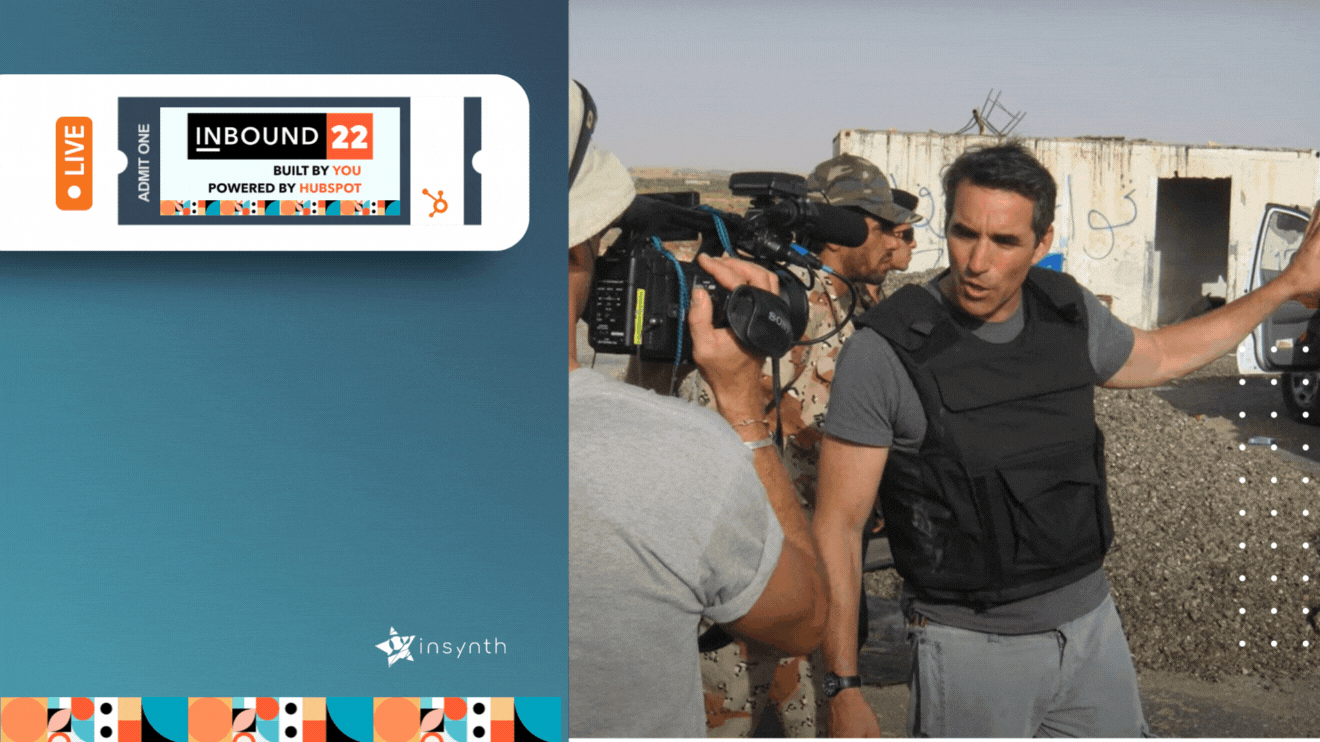3 min read
#INBOUND22: From the Front Lines of Libya to Tech Entrepreneur
![]() Jack Meisinger
:
23-Sep-2022 11:01:57
Jack Meisinger
:
23-Sep-2022 11:01:57

Trint CEO and founder Jeff Kofman talks about how his previous career as an Emmy award winning wartime reporter from places like Iraq and Libya prepared him for life as the Founder of a tech company. Jeff draws on five key lessons that he learned from the field and how they can be applied to the tech world as he has navigated this chapter of his career.
Being someone with no background in business, he has had to draw on these lessons to build a company that has gone through Series A fundraising, and has over 100 employees spread over multiple countries. *Disclaimer: Please note that this session touches on themes and images related to war and conflict, which may be upsetting to some viewers.
1. When the sh#! hits the fan... you need to stay calm
The worse things get, the calmer you have to be.
As the leader, you need to project calm, and you need to stay calm.
Jeff relates a story of freaking out during a coup in Haiti in 2004 and his security guard telling him, "shut up, you're not helping". He realised then that as the correspondent, and the leader of the group, he needed to stay calm, no matter the situation.
2. Communicate Clearly
When you don't look people in the eye and align your expectations, wires get crossed. When wires get crossed you lose valuable assets.
Jeff was in Libya when Gaddafi was overthrown. A 40 year old dictatorship is crumbling.
Needed to get out - the driver wasn't easy
3. Know Your Limitations
After Gaddafi was killed, there was continuing fighting. Jeff was in the thick of the fighting, trying to avoid sniper bullets. A 19-year-old kid died close to him from a sniper bullet in the neck.
Jeff had very advanced first aid training. In the training, they were told not to use the training for anyone except their team, because they are not medical professions.
Jeff knew that they should plug the wound, but wasn't able to help the kid. The training was very strict on this. So he just had to stand there and watch the kid die. It was devastating, but he doesn't think they made the wrong move. If they plugged the wound, the kid probably would have died anyway.
You have to know what you don't know. He wasn't a medical professional. Similarly in tech, he needs to form a team around him, based on the limitations of his ability.
Honesty and humility about what we don't know is important on all levels.
4. When others try to shape your story, own your story
One time Jeff was in Baghdad. There were lots of sandstorms and people trying to rob him.
However, in the city it seemed like George Bush's efforts to democratise the country was working. But then in 2003 IED's started appearing. The celebration turned to insurgency. The White House decided to pull back and send soldiers home.
There was a team in Fallujah who were headed home in a few days. Then they were called and told to stay for another 6 months in brutal heat.
This was in 2003. Jeff got in his bulletproof vehicle and headed up to Fallujah. They got to the base and talked to the commander who said they had a huge problem. Jeff was able to talk to the soldiers and asked them an open-ended question: "what would you say to Donald Rumsfeld if he were here?" A soldier answered: "Sir, you need to resign".
The Drudge report tried to smear him for being Canadian and gay.
When people asked him how he was handling the smear campaign he would say: "This is really hard for me, because I've never told my parents I'm Canadian".
By showing that their efforts weren't working, he stayed above the squabble, and owned his story.
5. Do not take a "no" for Answer
Jeff was in Honduras. He was reporting on a coup. He tried to get an interview at the palace. He was told he couldn't. He explained his credentials and tried not to take no for an answer.
Jeff talks his way through the lines of military all the way to the gate. He sees the president, Roberto Micheletti, through the gate and asks for an interview.
Jeffrey: "What do I call you?"
Roberto: "Jeffrey, you can call me Roberto"
And Jeff got the story.
As a founder you need that tenacity. You have to not take no for answer.
conclusion
